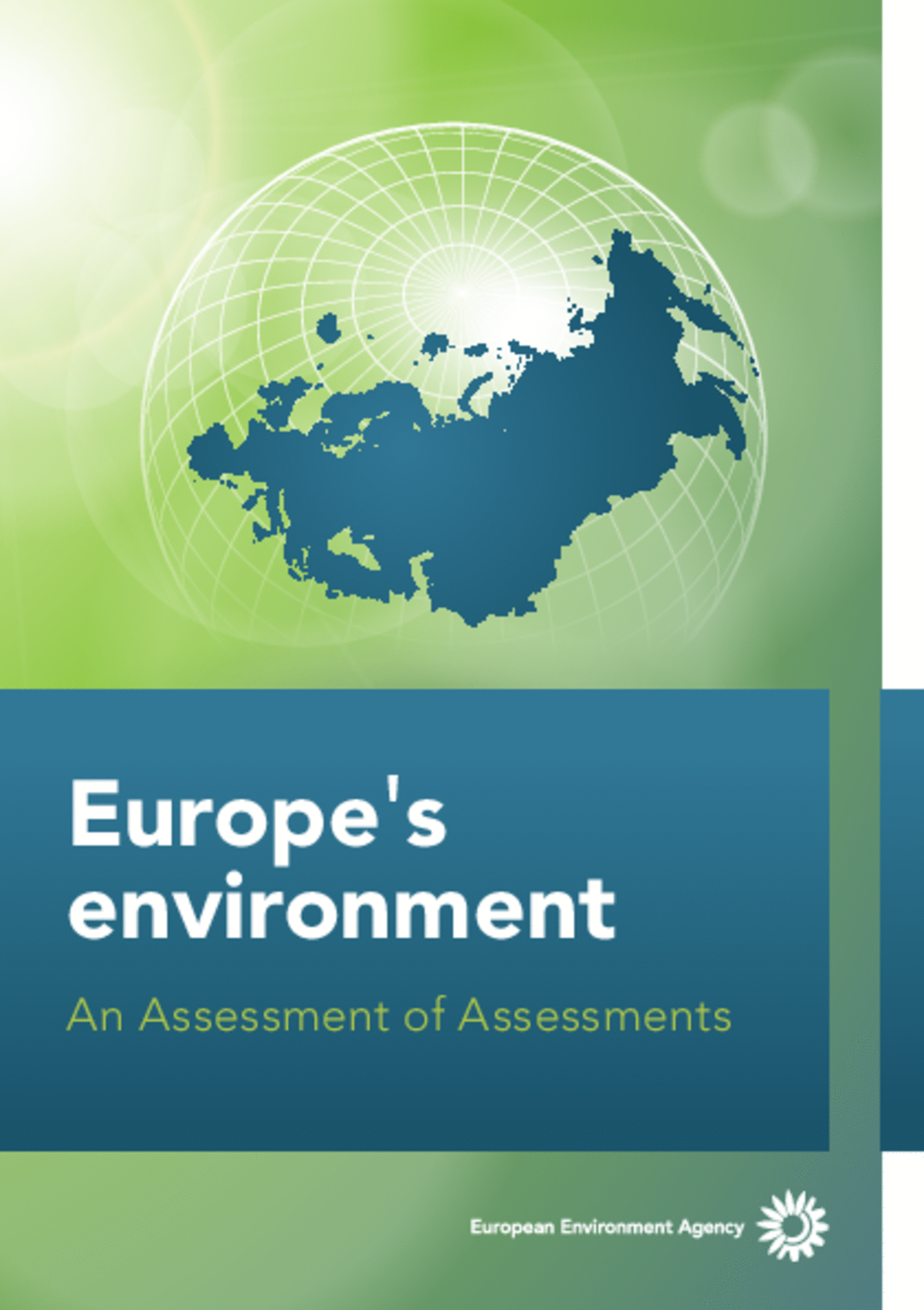All official European Union website addresses are in the europa.eu domain.
See all EU institutions and bodiesIn support of the 2011 'Environment for Europe' Ministerial Conference in Astana, EEA has prepared Europe's environment — An Assessment of Assessments (EE-AoA). This report provides a comprehensive overview of available sources of environmental information across the region which directly relate to the themes in focus at the Conference, water and related ecosystems, and green economy.
EN PDF: TH-32-11-825-EN-C - ISBN: 978-92-9213-217-0


